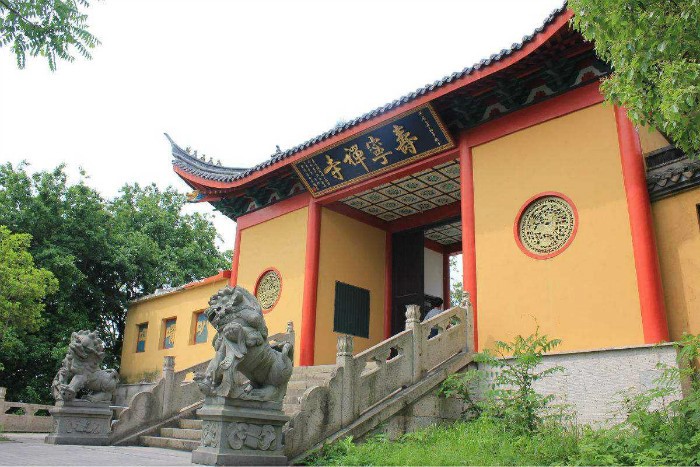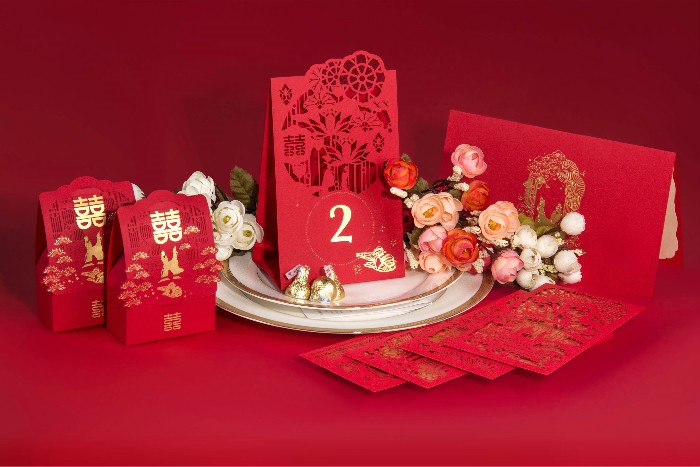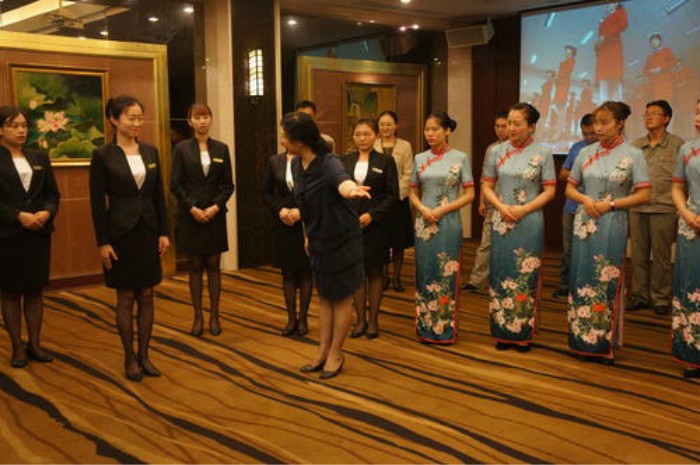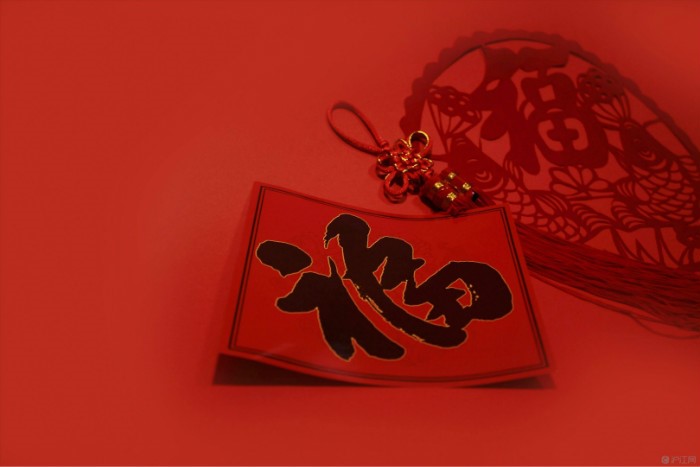In astronomy, the winter solstice is defined as the shortest day of the year in the northern Read More
Dujiangyan Irrigation System, Treasure of Sichuan
Known as the “treasure of Sichuan”, Dujiangyan irrigation system plays an important role in flood drainage, Read More
Tips For Visiting Temples, Things You Shouldn’t Do

A Proper Address of a Monk Read More
Safety Regulations of High-speed Train in China
According to historical data, the safety factor of Chinese railways is the highest in the world, so if you travel by train in China, it is quite safe. In addition, China has built a high-speed rail system connecting almost all major cities. It continues to expand. Read More
The Chinese View of Privacy, Different from the Western
Chinese people always dislike “privacy”, individual rights are often regarded as selfish interests, and Chinese people have little concept of privacy, so there is no word in Chinese that can be equated with “privacy” in English. Thus, it can be seen that Chinese and western cultures treat “privacy” differences. Chinese people are warm and hospitable by nature. In interpersonal communication, they are full of enthusiasm. You take it for granted that you know someone’s age, occupation, income, marital status, children, etc. We’ve all had the experience of going on a trip and the neighbors asking, “have you eaten yet?” “And” where are you going?” “” to do what? . We are used to these greetings, but in the eyes of westerners, such greetings are impolite and will feel very offensive. Because in their perception, such “greetings” have violated their privacy. Chinese people also do not have a strong sense of boundaries. As children, they do not think that parents’ unauthorized entry into their own room is an invasion of personal privacy.

From the above analysis, we can see that there are considerable differences between Chinese and western attitudes to privacy. The root of these differences is the cultural difference between China and the west. First, in the west, individualism is at the core of western values. That kind of individualistic value is centered on the individual, and the individual’s behavior is completely based on his own inner feelings and motives, which opposes the strangling of personality and the violation of the individual. It can be said that the emergence and development of western individualistic values is the result of the continuous accumulation and inheritance of the core values of western culture, as well as the continuous enrichment and deepening of the western understanding of human nature. Second, collectivism is the core of Chinese values. Collectivism emphasizes the individual’s obligation and responsibility to the collective and the supremacy of collective interests. In the relationship between the individual and the state, it is manifested as the supremacy of national interests; In the collective family, it is shown as the attachment and obedience to the family. For the benefit of the group, when necessary, individuals need to suppress or even sacrifice themselves. Under the long-term influence of the collective concept, Chinese people’s concept of privacy is naturally different from that of westerners.
Face in Chinese Culture, Another Form of Fame
Face concept has a very long history in China, under the influence of traditional culture, people in China with regard to its face problems often produce a large comprehension, many people think that face is their dignity, is like your face, it is not allow anyone to hurt, and strangers in the process of communication, Chinese people think about their face others respect, is respect for themselves. Face this concept also has certain collective consciousness, is likely to emphasize as a whole, such as the “face” of a country, a group of “face”, etc., in general, on the face culture in our country is very seriously, either in life or work process, attaches great importance to others’ ideas, and also will often find that the maintenance of face. Like Chinese anthropologists Hu Xian jin in the introduction of the “face” culture to the westerners, she once said: “the face of this culture represents the reputation of a kind of social value, it is through continued success in life and move onward to gain reputation, is also a personal pass through its own efforts to accumulated reputation.”

Our social collective idea is an important factor of “face” and the western cultural differences, our country is self-sufficient smallholder economy in before, at that time people in life that is mostly a family in the process of the concept of the family in this way of life and the environment, our people for the interests of the collective importance will be significantly higher than the personal interests, for a long time, under the background of The Times development, our people will stake in protecting themselves face and face. In addition, influenced by Confucianism, Chinese people think that respected let a person feel very face, is a “gentleman”, and “little people” will abandon, by the people under this kind of social ideology, people want to be a gentleman, not a, so, either in life or work will win respect for oneself, not to “lose face”, because “losing face” is a great thing.
Chinese and Western Greetings Embody the Cultural Differences
In daily greetings, most Chinese people use: “have you eaten yet?” “Where?” “What are you doing?” “To work? “Off duty? “To the street?” “Back? Wait a moment, ask a question specific, variety, form is flexible, not stick to one pattern, basically be the specific circumstance that when meeting and decide. This reflects a sense of kinship between people. But to a westerner, this greeting can be sudden, awkward, and even unpleasant, because they interpret it as a “grilling,” a feeling that they are being asked about their personal life. In the west, the greeting is simply “Hello” or divided by time, “good morning!” “Good afternoon! “Good evening! Just do it. The most commonly used greetings in the west fall into two categories: first, about the weather. As the English say when they meet, “it is a fine day today!” This is because of the influence of the British westerlies all year round. The warm currents from the Atlantic make the weather unpredictable, even the weather forecast is not accurate, so people are most concerned about the weather. Second, talk about the latest situation. But only in general, no privacy involved, can say: “how are you? Always say “nice to meet you” when you first meet someone.

As a matter of fact, with the development of The Times, most of the postscript languages in modern Chinese have deviated from the characteristics of showing concern for people and paying attention to concrete and practical matters in the early stage of their generation. When people meet to say these greetings, in fact, do not ask the other side to give a clear answer, even if the other side irrelevant answer will not care, as long as the message sent by the other side know, even if the purpose of greeting and politeness. But friends from english-speaking countries often have misunderstandings. For example, misunderstanding “have you eaten” means that the other party wants to invite him to dinner, and misunderstanding “where are you going” means that the other party is asking for and interfering with his freedom of movement, etc. Some foreign friends think that since you have already seen people “back”, “to work”, “busy”, but also ask, this is not redundant? Obviously, they equate a dummy greeting with a literal, substantive inquiry. In fact, the greeting words “have you eaten” and “where are you going” in Chinese are the same as the greeting words “How are you?” in English. Its pragmatic function is no different. This shows that Chinese and English greetings are the same in terms of their functions and usage, but their cultural connotations and possible points are different. What is considered polite in one language may not be considered polite in another, and different ways of greeting are subject to different cultural norms.
In terms of content, Chinese greetings have a remarkable feature, that is, they often talk about the other person’s life, such as how old they are, what kind of work they do, how much they earn, whether they are married, how many children they have, how healthy they are and so on. Anglophone people, on the other hand, don’t talk about these topics, which has something to do with the cultural psychology of people not wanting to get involved in each other’s privacy. Many of the polite expressions of concern used in the Chinese culture are perceived in the west as “meddling in other people’s private affairs” or “giving orders”, so the listener is offended by the threat to his or her face. In the eyes of westerners, such greetings that ask about the direction of others’ actions and personal information are regarded as interference in others’ freedom of action. The listener will feel extremely disgusted and will not feel polite behavior at all. This difference is caused by different ways of thinking in the east and the west.
The Differences Between Chinese and Western Marriage Customs
Marriage in China was arranged by family. “Behest of parents and proposals of matchmaker” decided everything about marriage. Usually the husband and the wife did not meet each other before getting married. The youths are not free when chose the lover in some places even today.
Marriage marks the beginning of complete independence from the parents. According to the English law, no one was allowed to get married under the age of sixteen. Marriage between the age of sixteen and eighteen must have the parents’ consent. But when the girl was over eighteen, she was free to choose her love. One’s willing was superior to anything.
Chinese men were superior to women in old people’s eyes. And women must comply with three obedience and four virtues. But man could have a wife and many concubines. In north of China in some places, husband and wife are still unequal.

The Bible says that husband should respect wife because both of them are blessed by God. And it emphasizes that the relations between husband and wife should include duty.
The main purpose of getting marriage in China is to continue the male offspring. In western countries, they are influenced deeply by religion, especially the Christianity. They think that it is the God who has created marriage. So they do not stress the blood relationship. They can remedy the defect of non-child by adopting other children.
Among all the religion by which people seek to worship, Christianity is by far the most influential in the west. Every phase of man’s life is touched by this religion, so much so that it has become part and parcel of western culture. British dominant religious belief is Christian faith; or rather the U.K. is a country of Christianity.
Bishop ordered marriage law as the fourth chapter in 1234. After issuing the law, it was carried on under the strong church control. In 1917, the marriage law referred: wedding ceremony should be held by priest or at least two witness; the willing should be true and not be forced.
Most Chinese people believes Buddhism which advocates “why and because relationship”. In this point of view, sky is the reason, and earth is the result; parents are the reason, and sons or daughters are the result; husband is the reason, and wife is the result.
Traditional Chinese traditional marriage custom was characterized by a distinctive patriarchal clan system. Marriage sometimes was a kind of ways to ally in political. The policy of cementing friendly relations through political marriages was a typical example in history. The traditional marriage custom was influenced deeply by Confucianism..
Western marriage custom is influenced deeply by religion, however, which emphasizes both men and women are God’s sons and daughters, so they are equal unlike Chinese who pay more attentions to boys. Western people consider girls are also the fruit of love.
The Comparison Between the Chinese Visiting Etiquette and Western Visiting Etiquette
Just as western countries, in China, if you want to visit somebody, you should make an appointment to make sure the time, the place and the number of people. In generally, the place is also determined by the host because china has a proverb: guest follows the host and show respect to host. But long time ago, people don’t make a notice or appointment in China, and if the host is not at home, he even should apologize to the guest. In a formal occasion, you’d better don’t let your children with you, maybe you can leave them at home. And also, the time you choose should be acceptable, and try your best to avoid the rest time or eating time. In America, Britain and other western countries, if you want to visit someone you should explain the purpose the time and the place. And after both sides agree, the appointment can be called successfully. And in most western countries, there are many ways to make an appointment, such as writing a letter, making a call or sending an email. If you don’t make an appointment before you visiting someone, there will lead to two results:
First, the host may receive you. It is the best result. In this situation, the visitor can’t stay too long; they should go home as soon as they finish the important thing. Second, the host may have something important to deal with, and he hasn’t time to welcome you. In this situation, you should be polite and hold a tactful tone.

Chinese has the tradition of hospitality and politeness. When the guest comes, whatever he or she is individual guest or not, the whole family will come out and make greeting to the guest. But there is an order, from older to younger. After the guest came home, hosts should find a sit to let the guest sit down, and then offered tea and cigarette. As we all know, drinking tea with guest is china’s traditional custom, but the host also offering all kinds of fruits to the guest. At this time, the guest should say some words to refuse such as “I don’t need it”, “it troubles you too much”. It is quite different in west in terms to welcoming the guest. When the host opens the door, he often says: “hello, glad to see you. Please come in.” When the guest comes in the house, he should take off the coat. At this time, the host should say: “shall I take your coat?” And if you ware a hat, you should take off it when you come in the house. After you sat, the host may ask you what kind of drinks do you want to have, and the guest often tell the host what he really want to have rather than refusing. You shouldn’t smoke if you don’t get the permit ion of the host in Western visit because it makes the host think you are impolite.
When the visiting comes to the end, the guest should make a farewell to the host. According to the British and American’s customs, the guest often says some words to suggest that he want to leave, such as:” I’ve got to be going now.” or “I’m afraid I must be going now.” At that time, the host will say: “can you stay any longer?” or “must you? It’s still early.” When the host persuades the visitor to stay again and again but the visitor insists on leaving, maybe the visitor really wants to leave. In this moment, the host should to see the visitor out. While in China, when the guest says that he must go, he would take actions right now unless the host said “don’t go” again and again. If the guest insists to go, the host can stand up after the guest stands up and persuade the guest to stay longer. If the guest sends you gifts, you should also send some small delicate gifts to him as a reward, and this custom both exists in west and China.
The Comparison Between Chinese and Western Festivals
“A holiday of a nation represents a glorious culture and concentrated customs of a nation.” To understand a nation’s cultural implications and its cultural characteristics, we must start with its traditional festivals. There exists great difference between Chinese and Western festivals due to their different languages, education, life styles and customs. The differences in their origin and shaping, celebration, food, banquet manners, color of festive dressing and the attitudes of accepting presents contribute to the great differences of Chinese and Western festive cultures.

Western traditional festivals emphasize on interactivity, collectivity and extreme carnival, focusing on self and advocating free expressing of personality. While in China, we focus on family reunion and enjoy happy family relations. Here we set two examples as follows.
Spring Festival Vs New Year
In western nations, the New Year’s Day falls on January 1st in Gregorian calendar. On the night of December 31, particularly close to the late zero o’clock, tens of thousands of people gather in to pray sincerely and silently for the coming year’s countdown. When the bell sounds 12, suddenly, the beautiful music sound, people are singing happily and talking cheerfully, playing all night long. In China, the Spring Festival falls on January 1st in lunar calendar since Qin Dynasty. On the eve of Spring Festival, we get together to enjoy delicious food and cuisine, staying up for the coming New Year to bid farewell to the old year. The whole family will spend a beautiful night in the sound of firecrackers. The Spring Festival lasts until Lantern Festival. Spring cleaning, New Year gathering, firecrackers, lion dance are the popular customs during Spring Festival. Each of the two festivals has its strong points: The western New Year embodies fashion trend and modern life. While Chinese people attach great importance to dense national culture and traditional atmosphere to the Spring Festival; it has the glorious history and the unique beauty.
Qingming Festival Vs Halloween Day
In China, April in the lunar year is an important month for ghosts. In this month, the souls will be released from the Hades, and people will be organized to hold activities to entertain them with their hospitality for this rare “holidays”. Particularly on April 4th, Qingming festival, every family will prepare for rich offerings to sacrifice these good brothers who come from the nether world. There’re many other activities during the Qingming Festival, such as visiting their ancestors’ tombs, spring hiking and planting osier. Osier means indomitable vitality and can ward off bad luck at the same time. Visiting ancestors’ tombs in Qingming Festival can not only show their respect, what’s more, it shows people’s enthusiasm for life.
In the west, the similar festival is called Halloween day(Oct.11-Nov.7th). It is the third important festival next to Christmas and Thanksgiving Day. It is said that people should let the ghost see their satisfactory harvest and present abundant sacrifice to them. Both the bonfires and lights are not only to scare the ghosts away, but also to illuminate them back to the place where they come from. On this day, people can disguise themselves freely and make trouble to their heart’s content. On many public occasions and home compound, people lay out different kinds of decorations on the windows and doors, such as pumpkin lights, a scarecrow and even the skeleton. Every family will hold a dressing ball, and put on fruit and other crops on the table.









